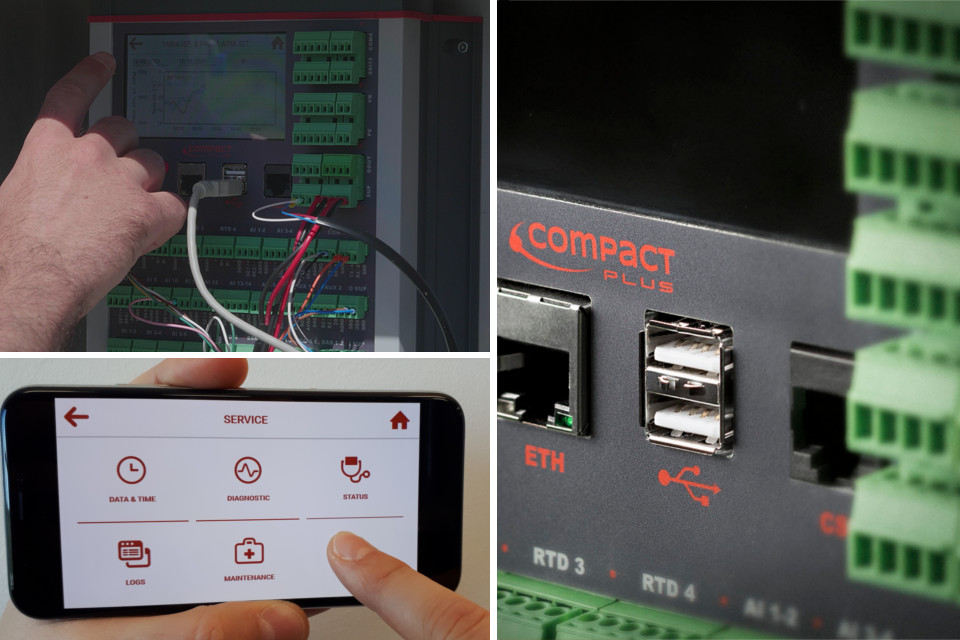Compact: standard interfaces and protocols, programmability and interoperability for total openness
December 2022

In addition to the RÆVO radio-modem, the Linux dataloggers of the Compact line are also an essential element within modern open and interoperable networks; as a matter of fact, they are technologically advanced, scalable and compact products and guarantee the high standards of openness, quality, power and reliability of all CAEtech products, while ensuring low energy consumption.
Let's analyse the main aspects that make it a reference product with regards to openness:
- configurability;
- use of standard interfaces and transmission protocols;
- access/sharing of data.
Configurability
The Compact dataloggers are designed for the creation of complex multi-risk systems and meet the need to integrate in a single monitoring network all the elements useful for controlling the different risk factors of a territory which are useful in the large regional Civil Protection networks. They are also useful for the creation of small autonomous local warning systems where, upon exceeding predetermined thresholds, the dataloggers can activate devices useful for inhibiting traffic, as well as sending alert messages.
As a Compact datalogger can be used for different purposes, it has been designed to be completely configurable by the customer when used in bare metal mode. Even when it is used in standard mode, the user can create and integrate customized processing or drivers for specific uses, thanks to the implementation of common writing languages, including Python, LUA, C, Shell Script.
Use of standard interfaces and transmission protocols
Compact dataloggers can manage all the standard sensors available on the market and the most varied transmission modules; moreover, they can be managed by control units with third-party software platforms, thanks to the use of the most common interfaces and standard protocols.
The connection of most sensors or devices is guaranteed by the presence of ports on the datalogger with SDI-12, MODBUS, Ethernet, USB and WiFi/Bluetooth protocol. The acquisition unit also guarantees connectivity based on TCP/IP standards. The Compact datalogger is equipped with the most varied standard protocols for communication: starting from the most common (e.g. ftp, http, ntp, ddns, modbus...), up to those specifically optimized for monitoring and widely used also in the IoT world, such as CoAP and MQTT. At the same time, this datalogger also maintains an absolute level of security and is compliant with new regulations, which lead to the implementation of more secure encryption protocols.
Access/sharing of data
By default, the datalogger sends data to a control unit, but it is not mandatory, as the data can also be displayed without software in the control unit, by using:
- the website made available by the station, without the need to install any type of additional software;
- the web service integrated into the station that makes all its data available in a format that can be interacted with by a machine (M2M). It can be queried by any customer to collect and display data as they prefer, on their own software or even on a management system provided by third parties.
Moreover, to ensure maximum interoperability and standardization, it is possible to send data in standard formats defined by national and international organizations such as WMO: SYNOP, SYREP, BUOY, MeteoXML, etc…
A year ago we reported the data relating to this product (for further information click here); today we can confirm its success. In the period between 2022 and 2023 alone, more than 1000 pieces will be delivered in Italy and worldwide, within projects in Peru, Lazio, Umbria, Kyrgyzstan, Piedmont, Ecuador, the District Basin Authority of the Central Apennines, Pakistan, CREA, Campania, Molise, Emilia-Romagna, Vietnam and many others…
To know more about the product click here.
Back to the news index
